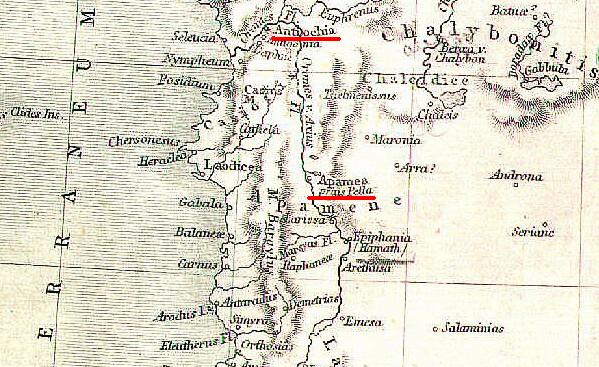Lessico
Archigene
In greco Archigénës,
in latino Archigenes. Medico d'origine greca (Apamea di Siria![]() , fine
sec. I - inizio sec. II dC). Visse a Roma sotto Traiano (98-117 dC),
esercitando medicina e chirurgia e assurgendo a grande fama per la sua abilità,
menzionato da Giovenale
, fine
sec. I - inizio sec. II dC). Visse a Roma sotto Traiano (98-117 dC),
esercitando medicina e chirurgia e assurgendo a grande fama per la sua abilità,
menzionato da Giovenale![]() in VI,236
– XIII,98 – XIV,252. Scrisse un trattato sul polso e Galeno
in VI,236
– XIII,98 – XIV,252. Scrisse un trattato sul polso e Galeno![]() ne
scrisse un commentario. A lui si deve la prima precisa descrizione del cancro
della mammella.
ne
scrisse un commentario. A lui si deve la prima precisa descrizione del cancro
della mammella.
Dei suoi
scritti rimangono pochi frammenti nella compilazione in settanta libri Synagogaí
iatrikaí di Oribasio![]() , un
frammento greco manoscritto De renum calculo (riferito da Conrad
Gessner in Nomenclator insignium scriptorum – 1555) verosimilmente
poi rielaborato da Filagrio
, un
frammento greco manoscritto De renum calculo (riferito da Conrad
Gessner in Nomenclator insignium scriptorum – 1555) verosimilmente
poi rielaborato da Filagrio![]() . Ezio di Amida
. Ezio di Amida![]() gli dedicò 5 capitoli nei
suoi Libri medicinales - Βιβλία ἰατρικὰ - composto da 16 libri.
gli dedicò 5 capitoli nei
suoi Libri medicinales - Βιβλία ἰατρικὰ - composto da 16 libri.

Archigenes (Ἀρχιγένης), an eminent ancient Greek physician, whose name is probably more familiar to most non-professional readers than that of many others of more real importance, from his being mentioned by Juvenal, (vi. 236, xiii. 98, xiv. 252.) He was the most celebrated of the sect of the Eclectici, and was a native of Apamea in Syria; he practised at Rome in the time of Trajan, a. d. 98-117, where he enjoyed a very high reputation for his professional skill. He is, however, reprobated as having been fond of introducing new and obscure terms into the science, and having attempted to give to medical writings a dialectic form, which produced rather the appearance than the reality of accuracy.
Archigenes published a treatise on the pulse, on which Galen wrote a Commentary; it appears to have contained a number of minute and subtile distinctions, many of which have no real existence, and were for the most part the result rather of a preconceived hypothesis than of actual observation; and the same remark may be applied to an arrangement which he proposed of fevers. He, however, not only enjoyed a considerable degree of the public confidence during his life-time, but left behind him a number of disciples, who for many years maintained a respectable rank in their profession.
Dictionary of Greek and Roman biography and
mythology
William Smith, Boston, 1867